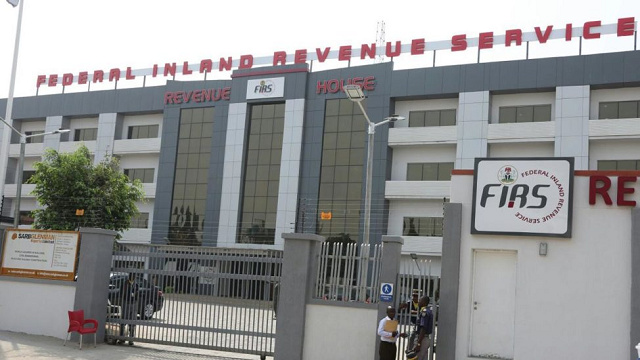The circular from the Executive Chairman of Federal Inland Revenue Service (FIRS), Muhammad Nami, to taxpayers over payment of taxes, is one that has left me heavily puzzled.
The circular, which gave an update on the good work by the federal government on palliative measures to cushion the effect of COVID-19 on taxpayers, went ahead to plead with corporate organizations in what it referred to as booming sectors of the economy to consider making payment of their annual returns earlier than the due date apart from their normal monthly obligations.
Muhammad Nami, made this plea in the circular, stating the obvious challenges the FG was facing at a time like this, he said that ”This has become necessary in order to ease some of the cash flow gaps being experienced by the government at this critical time”.
Across the world, governments have swung in to support businesses in the aim to retain jobs and keep the economy going.
To be honest to the Nigerian government, it has done quite a bit to support the economy as a whole. The 1st 2 paragraphs of the circular delved into these efforts. I however fear that the FIRS may be looking at the situation without fully appreciating the nuances and peculiarities of these sectors.
The inference from this circular is that these sectors are cashing out during this time. Banking, telecoms and supermarkets (Retail/eCommerce) were some of the sectors mentioned as booming sectors and I wondered what the data behind this assumption was. Let’s examine these sectors together.
Banking as a business, derives its essence from enabling business activity. Their core roles are broadly categorized into collection of deposits, enabling the transfer of these deposits and provision of loans.
Now every banking activity from swiping your debit card to providing a multi-billion dollar facility to build a factory, can be said to fall within these categories; and while the transfer of N10,000 from Mr. Akingbade in Lagos to his aged mother in Ekiti might follow the same overall process as Dangote Cement paying one of its contractors, the fees and overall impact on the bank’s bottom-line are nearly not the same.
Infact a large amount of bank transactions these days are the types I call sustenance driven transactions and these banks are seeing their core income hit dramatically.
In addition, some banks have had to issue between 90-days and one year moratoriums to their customers, to help them weather this period; so I struggle to understand how they are booming. They are actually taking serious hit.
E-commerce boom is also another assumption that is entirely not data driven. The funny thing is that the entire eCommerce push since the lockdown has been more of Groceries and if the FIRS had done a little inspection, they would realize that this actually contributes between 3%-5% to the entire business.
With most people trying to survive, nobody is buying luxury items, phones, gadgets, electronics, jewelry, other household items etc. And even when such orders do come in, the operators are grappling with security agencies who do not allow passage for any item aside those classified as “essentials”. Whereas, these other items are the major sources of eCommerce income.
More importantly, there is limited movement across board because of the lockdown which makes it difficult to carry out inter-state delivery. Security agents are also not helping matters as they do not allow suppliers who are mostly SMEs move their item to eCommerce businesses’ warehouses because they do not recognize them. How then is the sector booming when gadgets, electronics and household items are not allowed to be sold or moved?
Telecoms often tends to get the short end of the stick with regulation in Nigeria as everyone seems to believe they are making way too much money; and maybe they are but ultimately, they are offering a service and it is being paid for.
The total amount of screen time has dramatically increased across the world, with more and more people glued to their phones and tablets for news, entertainment and even connection.
What may surprise most is that voice calls (the real cash cow) has dropped for most telecoms operators. With less formal calls to make, chat messaging and internet calls have taken center stage. Also, most enterprise services with most Telcos have also taken a hit with most businesses’ shut down.
I think FIRS may missing some variables. The key to business success in any retail sector business is consumer spending and the key to consumer spending is employment.
Recent estimates show that at least 40% of employers plan to downsize as the covid19 pandemic outbreak increases. Workers across multiple industries, including airlines, hotels, restaurants, retail, and banking need to be rehired in sufficient numbers to truly impact consumer spending.
The small and medium scale enterprises also hit by various lockdowns will struggle to pay and hold on to employees. The thought of the FIRS and by extension, the government should be on how to restore income for those workers laid off because of COVID-19 shutdowns; it will also help increase consumer confidence and spark additional spending.
Till then, I believe the FIRS should be asking not what businesses can do to help government (as they are already doing it) but what the government can do to help businesses
Another interesting thing worthy of note in the whole of this issue is how the whole government apparatus allow our elected officers to live in opulence in the midst of no-wealth, they move about in convoys of expensive cars, with hundreds unproductive aides, and earning millions in allowances at a time that the global and national economies are experiencing a downturn?
Interestingly, Nigerian government is appealing for support in the fight against the COVID-19 pandemic, the legislative arm is ordering the latest model of Toyota Camry for each of the 360 members of the House of Representatives. Instead of cutting cost in these areas, the same government is looking away when the FIRS is snuffing out the little air that is sustaining the companies that are already gasping for breath.
It is surprising that Nigerian governments isn’t considering tax holiday and practical palliative for the businesses that are keeping the economy running like their counterparts in other parts of the world.
Governments in other clime are looking for ways of cushioning the effects of COVID-19 pandemic for corporates, but the Nigerian government, through its agencies, are adding to the burden of these companies.
My candid advice is for the Federal government is to ask the Federal Inland Revenue Service to withdraw the circular appealing for advance payment of the company tax, and look inwards to bridge the funding gaps.













